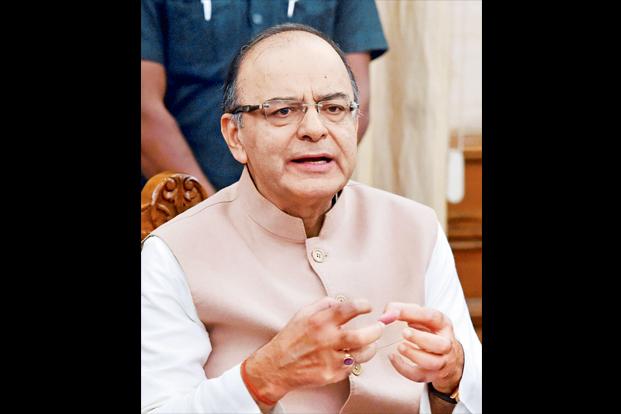Centre, states divided on sharing of GST administrative powers
Live mint
By Remya Nair
Sat, Nov 05 2016. 01 40 AM IST
At GST Council meeting, states insist on exclusive control over small traders; Arun Jaitley calls meeting of state finance ministers on 20 November to work out a solution.

Finance minister Arun Jaitley. Accepting the states’ demand for excluive control over small traders would shrink the pool of traders under the purview of central tax authorities. Photo: PTI
New Delhi: The centre and the states were unable to work out a compromise on Friday on sharing of administrative responsibilities under the proposed goods and services tax (GST) regime.
On the second and final day of the fourth GST council meeting, states insisted on exclusive control over small tax payers, who earn less than Rs1.5 crore in annual revenue, for both goods and services.
Accepting this demand would shrink the pool of traders under the purview of central tax authorities.
The thinking is that breaking this deadlock will require political intervention, as it will entail a compromise. Consequently, finance minister Arun Jaitley is convening an informal meeting of state finance ministers, sans civil servants, on 20 November to work out a solution.
At present, the estimated total indirect tax payer base, including value-added tax, service tax and excise, is around 10 million, of which around 0.4 million are common to the centre and the states. This leaves around 9.6 million tax payers of which around 6.6 million are value-added tax assessees, 2.6 million are active service tax assessees and around 0.4 million assesses are registered under excise.
At a press briefing after the meeting of the GST council, Jaitley said the aim of the discussion around dual control is to ensure that a taxpayer has to face only one assessing officer.
“There are two different converging points of view. Pros and cons of both the formulations were discussed today. An informal meeting will be held with state finance ministers without officials and aides to find a political solution to the problem,” said Jaitley.
One option that’s being considered is to divide the tax base horizontally, wherein tax payers below a threshold of Rs1.5 crore are administered by the states and those above this threshold are divided between the centre and the states. But this is not favoured by the centre.
The other option is to divide the entire tax base vertically, wherein the taxpayers are divided between the centre and the states in a fixed proportion.
The problem of dual control has risen because multiple taxes levied by the centre and the states at present will now be integrated into one tax under the GST regime, which is aimed at removing inter-state barriers to trade and integrating India into one common market.
West Bengal finance minister Amit Mitra, chairman of the empowered group of state finance ministers, has been at the forefront of this battle for protecting the interest of the states.
He has been vocal in his demand for keeping small traders under the states’ fold to ensure that they do not have to deal with both the central and the state tax authorities.
In a scathing letter to the central government, Mitra accused the government of concealing data on service tax payers. He questioned how the service tax payer base could increase threefold from 1.1 million to over 3 million in the space of two meetings of the GST council, Mint reported on 2 November.
After the informal meeting of the finance ministers, the next meeting of the GST council will be held on 24 and 25 November. This will sew up the issue of administrative control and finalize the drafts of four supporting bills—the central GST law, the integrated GST law, the state GST law and a law that will guarantee compensation to states for losses arising from transition to GST.
Central and state government officials will begin the drafting work for these legislation from Saturday. These will be sent to the states by 15 November for them to study the legislation before the meeting.
“It is essential that the issue of dual control is discussed threadbare and resolved before moving on to the GST legislation framework, as it will significantly impact business. Most businesses are looking towards simplification in the GST regime and this is possible only if the issue of dual control is resolved,” said M. S. Mani, senior director, indirect tax, Deloitte Haskins and Sells Llp.